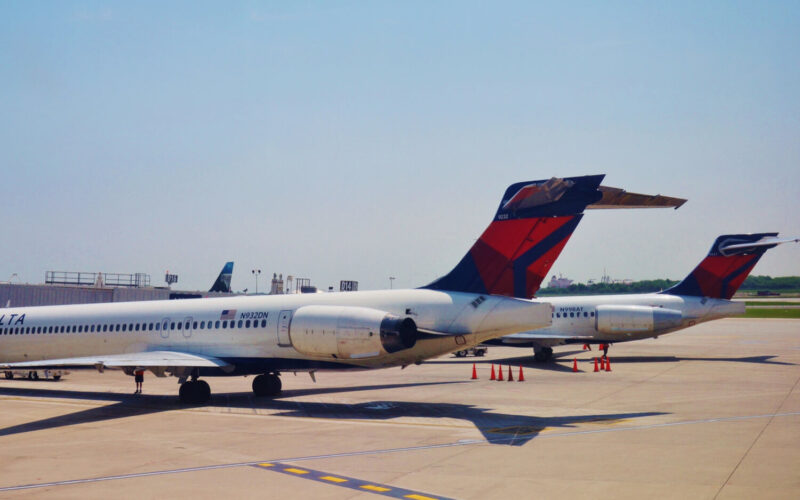Facing a significant travel demand drop and other COVID-19 pandemic-caused challenges, Delta Airlines CEO Ed Bastian said the airline would accelerate retirements of its remaining McDonnell Douglas MD-88 and MD-90 fleets, as well as some older Boeing 767s.
In the coming months, Delta Airlines (DAL) is planning to temporarily ground no less than half of its fleet, which makes up over 600 aircraft. While it is not known for how long the grounding would last, an indication could be the airline’s international flight schedule cuts. Delta is reducing its international operations by 80% over the following two to three months, as outlined in Delta Airlines CEO Ed Bastian memo to employees on March 18, 2020. The airline is also deferring new aircraft deliveries indefinitely, until it gains a “better clarity” on the duration and severity of the situation.
While most of the grounded 600 aircraft would likely be returned to service once the dire consequences of the COVID-19 outbreak ease, Delta’s fleet might look differently by that time. The U.S. legacy carrier is trying to advance retirements of its older aircraft, namely MD-88/90s and 767s, as outlined in Bastian’s memo.
Delta Airlines (DAL) has 77 Boeing 767s, the average age of which is over 22 years, according to planespotters.net data. However, only 44 of them are still flying, as 33 767s have been parked. The airline took first Boeing 767s in 1990, while the last aircraft of the type arrived in early 00’s.
The carrier also has a similar number of MDs ‒ 73, of which 47 are McDonnell Douglas MD-88s (including the one aircraft already parked) and 26 MD-90s (including one parked). The later type is of similar age as Delta’s Boeing 767s, average of 22.7 years, MD-88s total at over 28 years.

